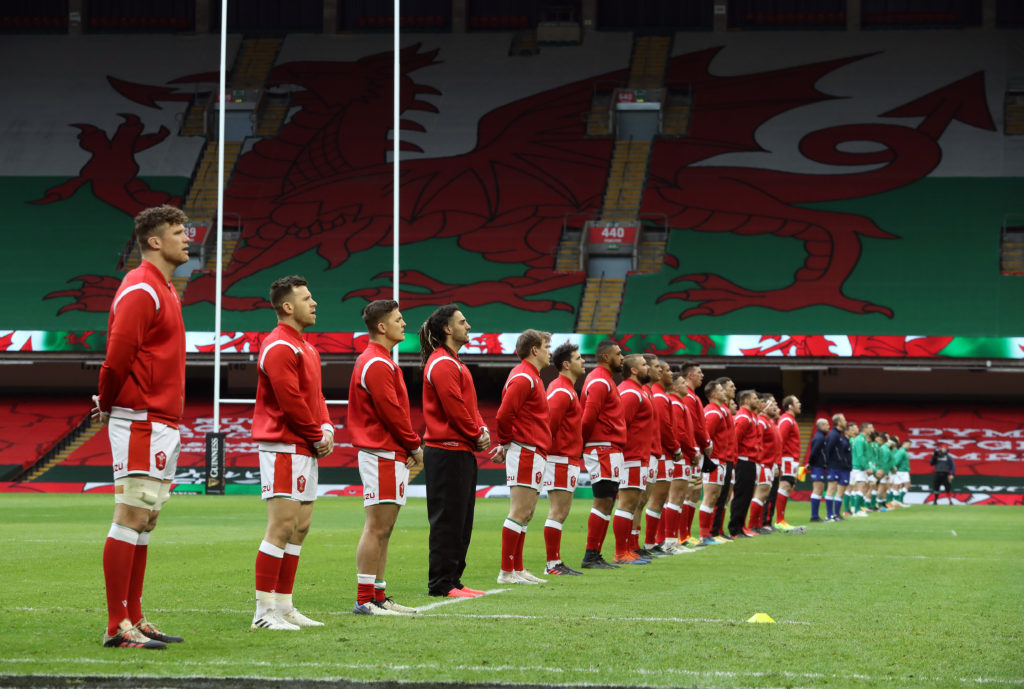NOT ONE Ireland player decided to 'take the knee' before Sunday's match against Wales at the Principality Stadium.
As both teams lined up before their first round Six Nations clash, an obligatory 'anti-racism' message came over the tannoy system.
Notably however, every single Irish player, as well as every single Welsh player, remained standing during the announcement.
It comes following scrutiny of England and Scotland after 14 of the 30 players who lined up for Saturday's Six Nations clash refused to take the knee ahead of kick off.
 Neither the Irish nor the Welsh players took the knee prior to kick off
Neither the Irish nor the Welsh players took the knee prior to kick offEver since the Black Lives Matter movement erupted into the mainstream following the death of George Floyd at the hands of American police officers last May, sportsmen and women around the world have been 'taking the knee' prior to kick off to show support for the fight against racism.
Some however deem the gesture of 'kneeling' to be an endorsement of the left-wing values promoted by the Black Lives Matter (BLM) political group, rather than simply of the values of anti-racism, and as such, the practice has become extremely divisive.
England star Billy Vunipola, who refused to take the knee on Saturday, criticised BLM for "burning churches and bibles," following a number of violent riots in the US last year.
"What I saw in terms of that movement was not aligned with what I believe in," Vunipola told The Good, The Bad And The Rugby Podcast.
Scotland coach, Gregor Townsend, said he "100%" backs his players' decision not to kneel.
The Rugby Football Union (RFU) has similarly backed players' freedom on whether or not to take the knee.
It isn't the first time BLM and rugby have caused a stir though.
Last year, BLM activists tried to ban popular England supporter song Swing Low, Sweet Chariot, because it was written by a freed slave from 19th-century Oklahoma.
The move was rejected though, with 69% of rugby fans saying they felt the song should not be banned in a Rugby Union survey at the time.

